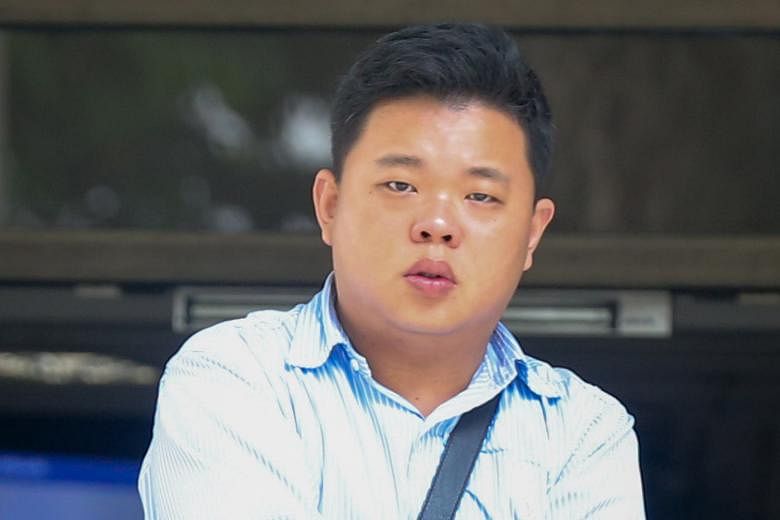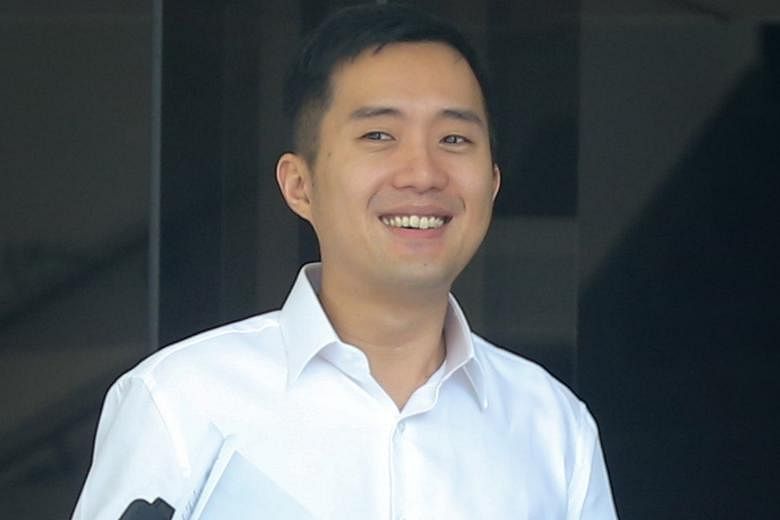Two men were charged yesterday over their roles in providing illegal short-term stays to tenants.
This is the first use of new regulations against home sharing since they kicked in on May 15.
Property agents Terence Tan En Wei, 35, and Yao Songliang, 34, face four charges each for renting out their condominium units to others for under six months.
They are expected to plead guilty.
The Straits Times understands that the men had used popular home-sharing service Airbnb.
According to court documents, both men had allegedly worked together to rent out four units at D'Leedon condominium in Farrer Road for short-term stays without permission from the Urban Redevelopment Authority (URA).
Under the Planning Act, the new rules make it illegal to rent out, sublet or share one's private residential property with others for under six months. Following a 2015 public consultation by the URA, the bar was lowered to under three months for private homes from June 30 this year. For Housing Board flats, the minimum stay is still six months.
However, Tan and Yao allegedly committed the offences before the three-month bar set in. Court documents were unclear as to whether they were owners, occupiers or acting as property agents for the units.
The amendment renders the provision of short-term stays for payment a form of development.
Under the Planning Act, those who carry out or allow the development of any residences without approval from the Government are liable to be fined up to $200,000. Repeat offenders face jail time of up to a year, on top of the $200,000 fine.
Those who are convicted but continue to rent out the unit can be fined up to $10,000 a day.
URA prosecutor Douglas Neo said that as this was the first mention of the cases for the two men, more time was needed for prosecutors to prepare for them.
The two men's cases will be heard again next month. Both were represented in court by Ms Wong Soo Chih of Ho Wong Law Practice.
HDB residents are also subject to stern penalties, such as fines and having their units repossessed, if they let out their flats or bedrooms on a short-term basis.
The URA is considering a new class of private homes where short-term rentals are allowed.
This means the Airbnb model may still thrive here, though few details about this upcoming class of housing have emerged so far.
There are around 8,700 Singapore listings on Airbnb now, playing host to more than 330,000 travellers over the past year.
A URA spokesman said the law is meant to safeguard the living environment of neighbouring residents. There were a total of 985 cases of unauthorised short-term accommodation in private homes in 2015 and last year, and about 750 from January this year to last month.
Not all cases end up in court - most offenders comply after they receive enforcement notices from the URA. But recalcitrant ones and those who blatantly disregard the regulations, even after URA action, face prosecution.
In response to queries from ST, a spokesman for Airbnb said its business has helped Singapore's economy, driving around $324 million of economic activity here last year.
"The current framework for home sharing in Singapore doesn't reflect how Singaporeans travel or use their homes today. The current framework also stands in contrast with Singapore's commitment to innovation," said the spokesman.
She said the company is helping locals to earn supplementary income, with the average host earning $4,700 a year.



